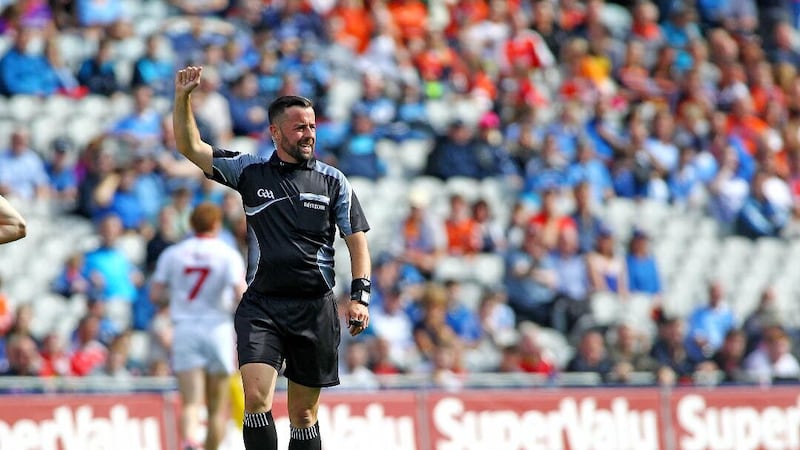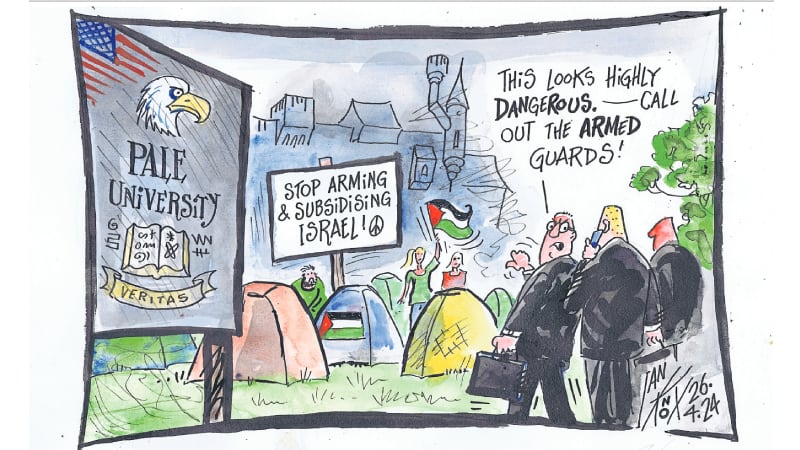A schism is a bitter near irreconcilable dispute between two groups lasting a long time. But Stormonts MLA schism must not impede an offensive by Derry’s seven parliamentarians, five MLAs, MP Elisha McCallion and Derry-based MEP Martina Anderson from helping get properly paid overseas jobs into Derry.
After all InvestNI is up and ‘running’ all over the US, Japan and other countries to get properly paid jobs from overseas into Derry in any expanding sector. Which is what they were elected to do and promised to do when electioneering.
Apart from IT none of the seven members are strong on voicing the job sectors best for Derry. So they should pay close attention to InvestNI strategies who have identified the life science sector as a generator of properly paid jobs.
Everything you see in Boots is a life science manufactured product manufactured in a plant employing 100 to 200 with each job attracting on average £30k to £35k. Night Nurse cough mix is just one of the thousands of examples.
Derry City and Strabane Super council is already chasing after life science, properly paid jobs. The Council pitched the north west as a prime location for such jobs to Boston and Philadelphia business groups in last November’s visit as a very good overseas destination for overseas expansion.
So the seven elected members should join forces with council in a joint offensive to capture InvestN-generated life science jobs or properly paid jobs in any sector.
Success will help arrest the haemorrhaging of our best and our brightest for decent jobs abroad. It would also decrease the risk of further Derry depopulation as the 2011 census showed a fall of approximately 500.
TOM BRADLEY
Derry City
UK cannot, without reneging on GFA commitments, leave EU
By the 1998 Belfast/Good Friday Agreement, facilitated by joint membership of the European Union, the United Kingdom and the Republic committed themselves to maintaining an open border between Northern Ireland and the Republic, and in effect between the island of Great Britain and the EU via Northern Ireland (if nowhere else).
The agreement also acknowledged that NI would remain in the UK as long as the population of NI chooses it to be so. Consequently and logically, and perhaps also legally, the UK cannot, without reneging on those commitments, leave the EU unless the RoI also leaves the EU, or NI leaves the UK. The UK-wide Brexit ‘leave’ vote, with its slim majority, should not therefore have been activated meantime.
The majority in NI voted to remain in the EU. If their commitment is stronger than their desire to remain in the UK the Irish land border problem is solved. The GB portion of the UK can leave the EU. Ireland, as one or two political entities, can remain in the EU.
If NI chooses to remain in the UK, the UK cannot morally, and in real effect, leave the EU. That would recreate a land border which the UK has recently pledged it will not do.
The population of NI holds the trump cards in determining the future relationships between and within these islands, and with the EU. Whatever the result of an eventual and inevitable referendum within NI to determine its future relationship with the UK, NI will remain, actually or effectively, in the EU so long as the RoI remains in the EU.
Simply and bluntly, the UK’s integrity is at stake due to the government’s incompetence and blindness in getting themselves into the present situation.
If GBUK is intent on leaving the EU, and hopes to do so with moral integrity, it must first persuade the population of NI to choose to leave the UK. Scotland, which also voted to remain in the EU, might then also choose to leave the UK, thus creating a land border on the island of GB if England and Wales leave the EU.
The Brexit process should be put on hold until the historical Britain-Ireland situation has been resolved, and the NIUK ticking time bomb de-activated and neutralised.
A NI referendum on UK membership appears to be an obvious first step in determining whether the UK (GB+NI) remains in the EU or GB leaves the EU without NI.
A farther-sighted option is the formation of a new British-Irish Union with mutually agreed powers retained by or devolved to the constituent members without loss of national or regional sovereignty or autonomy. The BrIrish Union as a whole could be in or out of the EU. Such a union, while resolving the British-Irish and internal UK situations, would be a mutually supportive fall-back in the event of the collapse or disintegration of the EU.
DENNIS GOLDEN
Strabane, Co Tyrone
Negative outlook
Head of the Church of England, Justin Welby, has hit out at people who voted leave in the EU referendum and is qouted as saying that “Brexit has divided the country” and calls for a new narrative warning of division and “a schism” within our society.
From what I gather the division is mainly from people who want to overturn this democratic result.
As a man of the cloth it is curious that he takes such a negative view on Brexit.
Should he not see the result in a more positive manner?
The referendum saw the biggest turnout for a Democratic vote in the UK with 30-plus million – 72.2 per cent turnout – visiting the polling stations.
Was this not a victory for democracy due to the numbers that engaged in the referendum?
The Brexit result reflected that the people rejected the promise of an envisaged business and trading structure if the UK remained in the EU – it’s a market of more than 500 million – and opted instead for the preservation of a recognised way of life and less tangibly, cultural and traditional matters. Essentially the people rejected the promise of materialism.
Considering that the public voted against all dire warnings that were put forth by many well respected organisations and figure heads, was the referendum result not also a victory over fear and pessimism as such warnings have not come to pass?
M CAIRNS
Belfast BT15
Catholic Church must change
If the Catholic Church is to have any future – and I openly admit as it stands today it has an extremely bleak outlook – the first stipulation is that the starting point of qualifying to be our next bishop must be an individual of high religion and faith with no ambition of power, bar to guide his flock to a better understanding of our faith. Definitely no-one who has a desire to be seated at the top table, wining and dining with what some would describe as the great and good. Another stipulation must be that he denounces all allegiance to canon law – a medieval invention which was used for centuries and right up to this day by those in power in our Church to rule over and bully parishioners. The ownership of all lands and properties currently in the hands of bishops and parish priests must be returned in its entirety to the relevant parishes and parishioners. Our new bishop’s only responsibilities will be spiritual and administrating our religious needs with respect. If all of the aforementioned is not enforced and adhered to our Church is finished and I am finished with it.
PETER McEVOY
Banbridge, Co Down
Voice of the innocents
Why are we, the people of the north of Ireland who hold an Irish passport, not allowed to vote in the proposed referendum about abortion in the Republic? Do the legislators and their supporters want to reintroduce the death penalty for innocent babies?
NORAH QUINN
Belfast BT9








